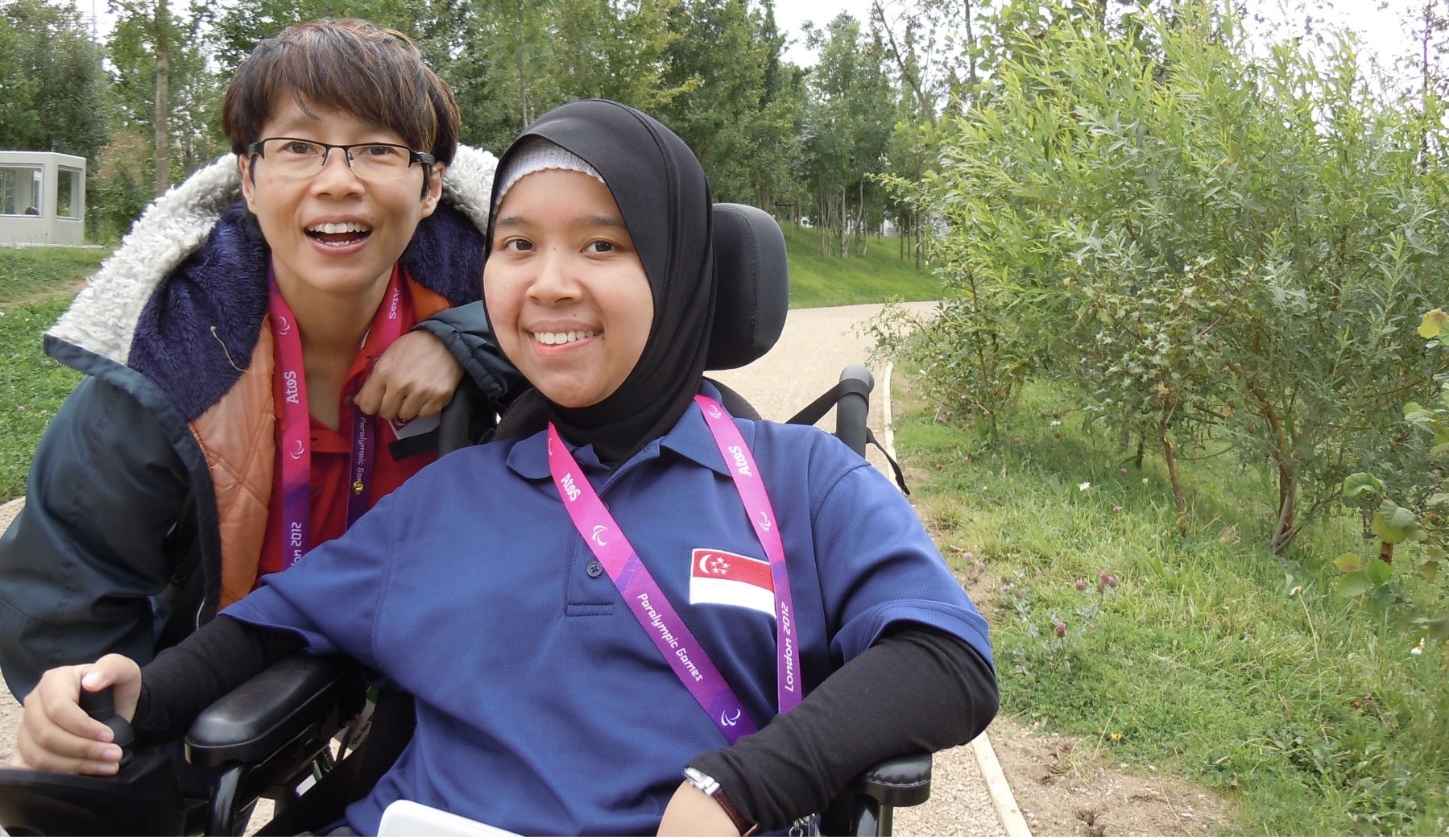Rising tension in the home during Circuit Breaker? Here’s how to diffuse friction
by Gemma Koh // April 28, 2020, 2:15 am

Photo by rigel on Unsplash.
The world’s number one health crisis right now may be the coronavirus. But there is another health crisis that is insinuating itself worldwide – domestic friction.
With families forced into lockdown together for months, the strain in already-tense households has seen a rise in calls to helplines.
Minister for Social and Family Development Desmond Lee noted in Parliament on April 6 that there have been “higher rates of domestic violence, domestic quarrels and friction in the family” in countries that had imposed movement restrictions.
“You do not need to struggle alone.”
On April 10, he announced in a Facebook post that a 24-hour national care hotline had been set up, adding: “If you need someone to talk to about the issues that weigh you down – worried about COVID-19, its impact on your personal and family lives, on your jobs and livelihoods, and your future – you do not need to struggle alone.”
The announcement came on the heels of the Association of Women for Action and Research (Aware) reporting a 35% jump in calls in March as compared to March last year.
One social worker had told AWARE that 60% of her daily referrals were family violence-related, up from 30% last year.
Singapore is not alone. The worldwide surge in domestic violence compelled the United Nations to call for urgent action. “I urge all governments to put women’s safety first as they respond to the pandemic,” Secretary General António Guterres posted on Twitter earlier this month.
The message: Seek help if you or vulnerable members of your family are in danger. (See below for helplines.)
Even if your home is safe, friction can arise from spending almost every moment at home with your spouse or family during the current Circuit Breaker.
Wendy Yeap, a counsellor at Lakeside Family Services, provides communication tips on diffusing friction at home.
There is a lot of friction at home. What can I do or say to make sure that things don’t escalate?
We cannot control what others say or how they behave. But we can take responsibility for how we speak and how we respond.
Instead of blaming or criticising, say what you feel about the situation and what you need.
Instead of … “You guys all expect to be served. Do you think I am your maid?”or “You guys are so lazy.”
Try: “I feel overwhelmed by the amount of housework I have to do during this period when everyone has to stay at home. I need the responsibility to be shared by everyone in the family.”
Take responsibility, even for a small part of the problem.
Instead of: “My boss gave me so much work to do.” or “ You never said that you needed help. I cannot read your mind.”
Try: “You are right. We all need to work as a team and handle the housework together.”
It is also important to:
Build up a culture of appreciation. Let your partner and family members know what you appreciate about them or the things they are doing.
A good sense of humour helps. It may diffuse tension even in the midst of conflict.
Make the home a playful and loving place.
I’m staying silent as I’m afraid saying something will make the situation worse. But my partner seems even unhappier.
Stonewalling is your attempt to keep the peace. But instead your partner feels ignored and you feel stressed.
When your stress hormones are released and your heart rate is elevated to more than 100 beats per minute, it is nearly impossible to listen and think properly.
It will take at least 20 minutes before you are able to constructively express your view constructively. So go do something you enjoy during this 20 minutes until you feel calmer.
My partner or family member is really upset. Possibly with me.
Rather than going straight to sharing how you feel, ask yourself: What is the person is thinking, feeling, desiring and needing? If you were in their shoes, how would you want to be responded to?
People like to be validated. So admit the truth of what the other person is saying, even if it is just a small part.
This is hard to do because we often think that the other person is unreasonable and wrong. The other person is trying to communicate a message but doing it very badly.
People like to be validated. So admit the truth of what the other person is saying, even if it is just a small part. It will catch the person off guard because most people would expect you to be defensive.
The negative feelings of the other person will likely be diffused.
For example, if accused of being irritating and nagging too much, try: “You are right. Sometimes I give instructions excessively. You have told me to leave the matter to you but I still keep reminding you. I can understand why you feel irritated and think I nag too much.”
Then respectfully convey your understanding of the other person’s perspective. This empathy is a key ingredient of good communication.
Try: “It must be upsetting to think that I do not trust you to remember instructions. You probably feel disrespected. Did I get it right?”
At the basic level, you can just paraphrase what the other person just said and you could ask if your perception of what the other person is feeling is correct. You could also ask open-ended questions to deepen your understanding of what the other person is thinking or feeling.
This would be a wrong time to have a constructive conversation. So soothe yourself and also the other person.
You might think the other person does not deserve your respect, but it is what the person needs.
So when can I express how I feel?
Express how you feel gently, only when the other person is feeling relaxed.
Start by saying what you appreciate about the other person before you share about how you feel.
Try: “I appreciate that you were willing to help. I know I should trust you and only need to give instructions once. I did not expect that you would yell at me. I was really scared.”
What are healthy ways to express my stress?
Physical exercise can help to regulate mood.
Do deep breathing. It helps your body calm down and relax.
Occupy yourself with an activity that gives you pleasure, such as drawing, writing or playing an instrument.
Find some time to be by yourself, even if it is for a few minutes each day. Susanna Wesley, the mother of John and Charles Wesley would sit in a chair to pray for two hours every day, with her kitchen apron pulled up over her head while her 10 children occupied themselves with their own activities around her.
Learn how to be assertive. Share how you feel with someone who is a good listener or with a professional counsellor.
I am a believer in a family of non-believers. How can I reduce friction at home?
Start by trying to understand what your family feels instead of being preoccupied with how you feel.
They might think that they have “lost” you. They might feel judged or rejected by you.
It will be good to have a conversation with them individually to understand their perspective and to assure them of your unconditional love for them. You may be placed in that position so that God’s love can be demonstrated to them.
I could do with some encouragement from the Bible.
God enables us, even when we feel weak or unwilling. We give love and respect, not because people deserve it, but because people need it. In addition, we do it out of obedience to God.
- “Wait for the Lord; be strong, and let your heart take courage; wait for the Lord!” (Psalm 27:14)
- “Whatever you do, work heartily, as for the Lord and not for men.” (Colossians 3:23) (This includes working on our relationships.)
- “However, let each one of you love his wife as himself, and let the wife see that she respects her husband.” (Ephesians 5:33)
Helplines
If you sense immediate danger, call 999
If aggression is unavoidable, or if you suspect someone is a victim of family violence and you sense immediate danger, call the police.
You may also want to reach out to a Family Service Centre (click for full list). Or a Family Violence Specialist Centre below:
- Care Corner Project StART (Stop Abusive Relationships Together)
Tel: 6476 1482
Click here for more info or email StART here. - Centre for Promoting Alternatives to Violence (PAVE)
Tel: 6555 0390
Click here for more info or email PAVE here. - TRANS SAFE Centre
Tel:6449 9088
Click here for more info or email TRANS SAFE here. - Big Love Child Protection Specialist Centre
Tel: 6445 0400
Click here for more info or email Big Love here.
- HEART @ Fei Yue Child Protection Specialist Centre
Tel: 6819 9170
Click here for more info or email HEART here. - MSF Child Protective Service
Tel: 1800 777 0000
Click here for more info.
Having problems with your marriage, children, or seniors?
Live chat or email counsellors at CPH Online Counselling.
(Live chat available from 9am-9pm from Mondays to Fridays, except Public Holidays).
We are an independent, non-profit organisation that relies on the generosity of our readers, such as yourself, to continue serving the kingdom. Every dollar donated goes directly back into our editorial coverage.
Would you consider partnering with us in our kingdom work by supporting us financially, either as a one-off donation, or a recurring pledge?
Support Salt&Light


